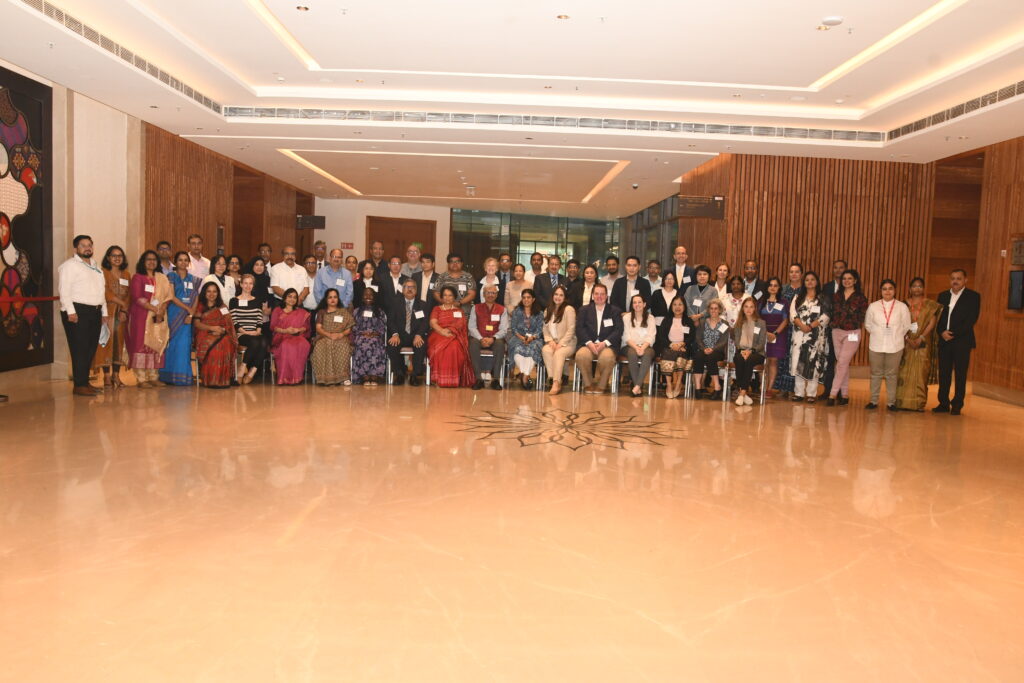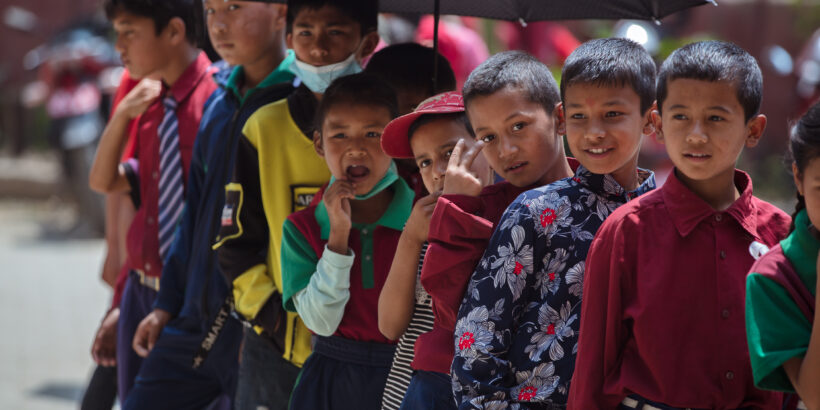At the end of August 2024, key decision-makers and stakeholders from 13 Asian and Western Pacific nations gathered in Delhi, India, for the 2024 Asia Regional Meeting on Typhoid and Typhoid Conjugate Vaccines (TCV). Co-hosted by the Sabin Vaccine Institute and the Indian Council of Medical Research, the meeting gathered more than 75 researchers, health experts, and policymakers to address common challenges with typhoid control, share experiences and lessons learned, and explore resources to support TCV decision-making and implementation.
The two-day event featured a robust agenda focused on highlighting the burden of typhoid and the urgent need for TCV introduction in the region. Although the countries gathered varied in population size, typhoid burden, and TCV introduction status, there were common themes throughout the presentations, including the importance of, yet difficulties with, implementing comprehensive surveillance; the growing threat of drug resistance; and the limited resources available for TCV introduction, particularly for non-Gavi eligible countries.

Discussions reiterated that while many countries are making strides in typhoid prevention, significant barriers, such as competing health priorities, financial constraints, and difficulties with identifying sufficient data to support TCV decision-making remain. Dr. Viviane Sespene from the Philippines Department of Health noted that “The Regional Meeting opens our eyes to other Asian countries’ challenges that we need to reflect on, and best practices against typhoid that we can emulate.”
The urgency for TCV introduction was a consistent theme throughout the meeting, driven by concerns about the increasing burden of typhoid, drug resistance, climate change, inadequate urban water, sanitation, and hygiene systems, and the increasing pressures on local health systems. The collective message from the meeting was clear: without timely action, typhoid burden will continue to rise, putting further strain on healthcare systems and disproportionately affecting vulnerable communities.
Attendees left with a renewed sense of purpose and commitment. While significant obstacles for widespread TCV introduction remain, the discussions and partnerships forged during the meeting will be critical in overcoming these challenges. Teuila Pati, from Samoa, captured the spirit of the event, saying, “[this meeting] was a great opportunity to see the progress of the elimination of typhoid in respective countries. It is important to recognize that every country has its own challenges; however, with the widespread availability of typhoid vaccines, especially to low-income countries and populations, this has been a turning point towards the elimination of this disease.”
We can’t wait any longer for decisive action. By continuing to collaborate, share knowledge, and secure the necessary resources, the Asian and Western Pacific region can continue to take on typhoid.
Cover Photo: Children in Nepal wait to receive TCV during the introduction campaign. Credit: TyVAC/Rocky Prajapati.



